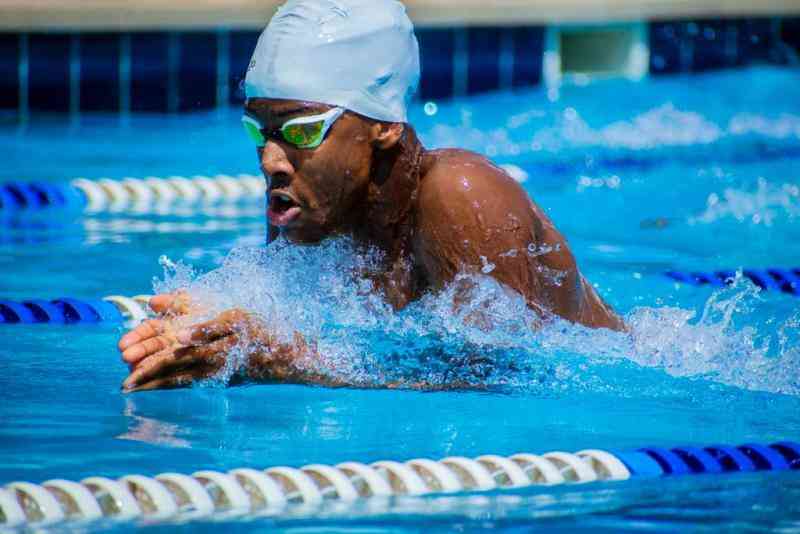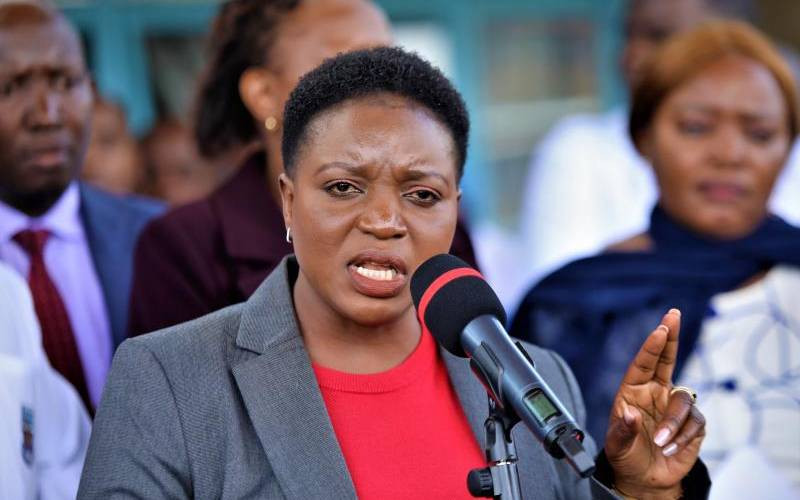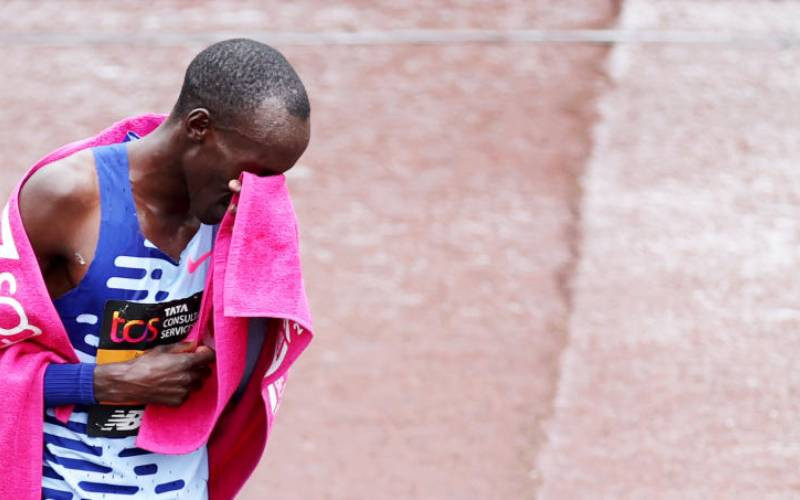By Erick Ochieng’ and John Lawrence
Nairobi, Kenya: “Most of us, swimming against the tides of trouble the world knows nothing about, need only a bit of praise or encouragement — and we will make the goal.”
These words of Jerome Fleishman said decades ago reflect the true status of women swimming in Kenya.
Indeed it takes a lot of courage to be a woman swimmer here. Women and girls, in particular, undergo many challenges in their pursuit for swimming glory. From internal and external conflicts within their federations to battling sex predators, swindlers, patronage, domestic squabbles and the high cost of training facilities, theirs is an uphill task.
When Kenya’s breaststroke sensation Achieng Ajulu Bushell took up British citizenship in 2011, it was a case of a brilliant swimmer throwing in the towel after being forced by factors beyond her control to paddle against the tide.
“It was evident that Ajulu was offered a better package for her swimming career including scholarships, free schooling and other attractive perks, perks that the Kenya government was unable to counter,” Kenya Swimming Federation (KSF) chairperson Winnie Kamau, told The Nairobian.
She later added: “It is not cheap being a swimmer in Kenya so Ajulu’s mother, who is British, thought if Ajulu could change her nationality and start swimming for Britain, her career would advance. But sadly, swimming in Britain is more advanced and competitive than in Kenya. She was top in Kenya but when she went to Britain she wasn’t anywhere near number one.”
Ajulu moved to London as she stepped up her preparation for the 2012 Summer Olympics but later withdrew from competitive swimming, following a plateau in form. She did not seek entry to the 2012 Olympic Games in London announcing in February 2012 that the withdrawal was permanent.
The Kenya women swimmers are always good in their teenage years as they take part in the annual local Long Course (February), Short Course (October) and National Junior Championships (May) being staged in Nairobi and Mombasa. According to Kamau, Kenya lacks female swimmers above 20 years of age because the sport becomes lonelier as the athletes grow.
“Swimming is a very lonely sport and women swimmers need a lot of encouragement to be involved. The sport has no social life since the athletes have to train on their own, or probably with their coaches, in early mornings or late evenings,” says Winnie.
Clubbing is another factor Winnie says destroys the athletes’ careers: “Many succumb to peer pressure when they join college because they don’t want to feel lonely. They start socialising to escape the loneliness in the pool.”
Other girls fail to exploit their talents fully due to economic means: “Swimming is an expensive sport. When the girls realise they cannot afford training facilities, they opt out. This is detrimental as that void could lead to social vices,” says Winnie.
In order to inculcate a winning spirit among the women swimmers, KSF chairman Ben Ekumbo says they have started plans to help the athletes achieve their full potential in the sport.
One such avenue is the swimming scholarships that are granted to Kenya by the world swimming body Fina and its African counterpart, Cana.
“Emily Muteti is a young, up-and-coming swimmer who has the potential to stamp authority in the continent in the near future,” says Ekumbo. He says the association is developing and inspiring swimmers who will soon fit into the shoes of the Dunford brothers, David and Jason.
Stay informed. Subscribe to our newsletter
The swimming boss, who is also the Cana secretary general and treasurer and also a board member of Fina, says they have already awarded Talisa Lanoy a scholarship and she is now based in California, US, for high performance training.
“I believe Muteti, Lanoy Sonia Chege and Sylvia Brunheiler can be the better replacements for David and Jason Dunford who brought out the best of Kenya continentally and at the 2012 London Olympics.”
KSF plans to enter the women swimmers in various competitions including the Africa Junior Championships in Zambia next month where Kenya will take a squad of 28 swimmers between 13-14 and 15-16 years.
Other high profile championships that they will be attending next year include the Africa Youth in Gaborone, Botswana, Youth Olympics in Nanjing China and the Commonwealth Games in Glasgow, Scotland. The federation will also give the women swimmers a chance to take part in the world junior championships in Dubai next August.
Muteti managed seven gold and three bronze at the recently concluded continental event in Zambia in May. Other upcoming swimmers who are inspired and are struggling to fit in the shoes of the Dunfords include Daniella Awori (15), Ayushi Chandaria (15), Martha Opiyo (15), Anita Field (15), Ger Ogot (13), Maria Brunlehner (13) and Akinyi Ogot (16).
KSF treasurer David Ngugi says although there is abundant women talent in the country, more needs be done to develop the sport. He proposes that the government constructs standard pools and new stadia.
Swimming pundits also suggest that the federation should establish various youth programmes, events and trainings to mould elite women swimmers.
Nairobi Swimming Association (Nasa) chairman Reginald Okumu says Nasa has a requested the Nairobi county government to help them put up a 25-metre pool in each of the eight districts of Nairobi and four other 50 metre (Olympic size) pools in Nairobi to help girls with talent, especially in Eastlands.
Also in Nasa’s master plan is a modern gym where the swimmers can train.
 The Standard Group Plc is a
multi-media organization with investments in media platforms spanning newspaper
print operations, television, radio broadcasting, digital and online services. The
Standard Group is recognized as a leading multi-media house in Kenya with a key
influence in matters of national and international interest.
The Standard Group Plc is a
multi-media organization with investments in media platforms spanning newspaper
print operations, television, radio broadcasting, digital and online services. The
Standard Group is recognized as a leading multi-media house in Kenya with a key
influence in matters of national and international interest.
 The Standard Group Plc is a
multi-media organization with investments in media platforms spanning newspaper
print operations, television, radio broadcasting, digital and online services. The
Standard Group is recognized as a leading multi-media house in Kenya with a key
influence in matters of national and international interest.
The Standard Group Plc is a
multi-media organization with investments in media platforms spanning newspaper
print operations, television, radio broadcasting, digital and online services. The
Standard Group is recognized as a leading multi-media house in Kenya with a key
influence in matters of national and international interest.








